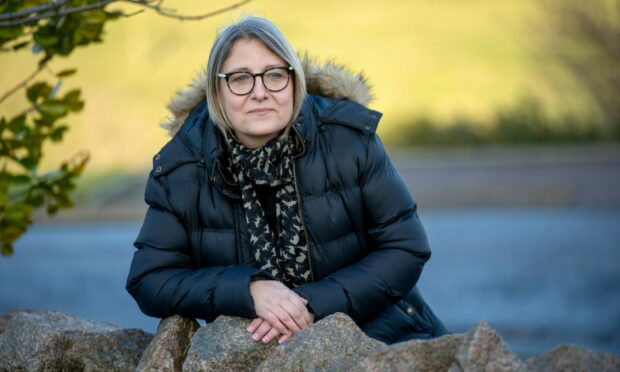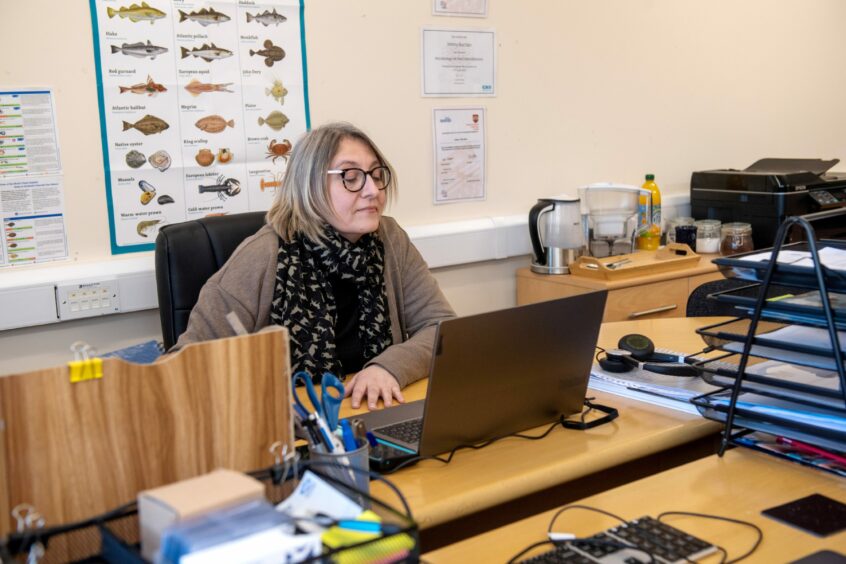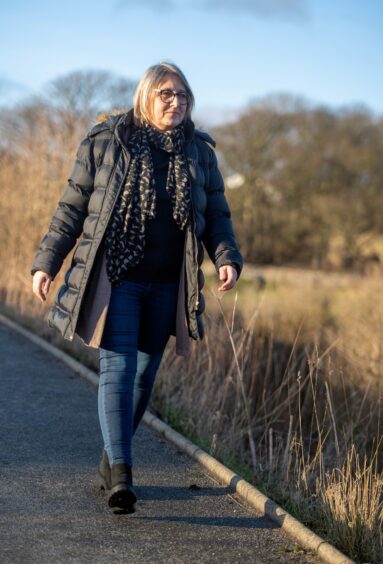Every day is a busy day for Jean Meikle.
There’s no time for any relaxing when she gets up, even if she’s had a bad sleep.
After tending to her pets, she starts to care for her husband, setting alarms for throughout the day to remind him when it’s time for his medication.
At 5.45am she’s often racing out the door with a coffee in her hand to get to the office.
Life would be much easier for Jean if she could work in a part-time role.
But, just like many thousands of other unpaid carers across the country, it’s just not a reality that she can afford.
‘People ask how on earth do you manage it?’
Jean’s husband has degenerative spinal disease which affects his mobility.
It’s a debilitating illness that he can find difficult to cope with without the support of his wife.
Jean does not want to share details of her husband’s struggles to protect his privacy, but she’s keen to highlight her role.
Around 700,000 people are estimated to be caring for loved ones at home with very little help – saving the government a staggering £13.1 billion each year.
“It’s full on every day,” Jean, 49, says. “It doesn’t matter whether it’s Christmas or even if you’re off work.
“Things still need to happen, you don’t get a day off.”
Thankfully she works for an understanding businessman who gives her the flexibility she needs to work while caring for her husband.
This means the training manager can still attend all her husband’s appointments at home and at hospital.
When she returns home to St Fergus from work at the end of the day, her caring role continues and she has to tackle the housework.
“A lot of people who work full-time have a partner at home but my husband is not able to do the cooking and cleaning,” Jean explains.
“So I’m doing the household role, the carer role and the full-time role.
“If you tell someone they ask ‘How on earth do you manage it?’
“It’s just what you do and you get used to it.”
Unpaid Aberdeenshire carer: How has life changed for Jean?
Last year Jean found out about Quarriers, a social care charity based in Scotland, and called them up to see if they could help her.
She was relieved to find out there’s a range of services available to help adults and families going through challenging circumstances.
“They organised an occupational therapist to come out to us and put equipment into the house which we hadn’t had before,” Jean explains.
“Now a physiotherapist also comes to the house to help keep up the mobility that my husband has, to maintain it a bit longer.
“Nobody told me that you could just refer yourself for these services. A doctor knew where we were but it was never offered.
“Until somebody tells you, you don’t know.”
‘We’re not visible, nobody sees us and you just carry on’
Jean has been going to a monthly coffee group set up by Quarriers in Aberdeenshire to connect with other carers and has access to a family welfare support worker.
She was recently treated to a respitality break, a spa session donated to the Quarriers charity by Jackie Gibson of Body Logic Therapies.
“It was absolute bliss, an hour just for me,” Jean says. “I relaxed enough to fall asleep, and afterwards I felt less stressed.”
Jean, who also volunteers as a mentor for teenagers through MCR Pathways, says the Quarriers service is “critical” for unpaid carers in Aberdeenshire.
And after caring for her husband on her own for 20 years, she’s keen to let other people know about the service.
“There are people from all walks of life, of all ages, caring for different people,” she says.
“We’re not visible, nobody sees us and you just carry on.
“But there is support available and the work they do will affect so many people and families.
Jean thankful for Quarriers who ‘changed her life’
“Quarriers has changed my life, and my husband’s.
“I just wanted to say thanks to them for everything that they do.”
Lora Fenwick, from the Quarriers Aberdeenshire Carers Service said: “It is hugely important for unpaid carers to be able to get a break, simply to allow them to continue with their caring role.
“Unpaid carers make a huge contribution to society carrying out caring roles that would otherwise cost government and taxpayers £13.1 billion a year, and they do it out of love.”
If you are an unpaid carer and are keen to find out if you can get help you can find out more about the Quarriers run Aberdeenshire Adult Carer Support Service.
Businesses keen to donate a short break of any type to a carer can contact respitality@sharedcarescotland.com.






Conversation